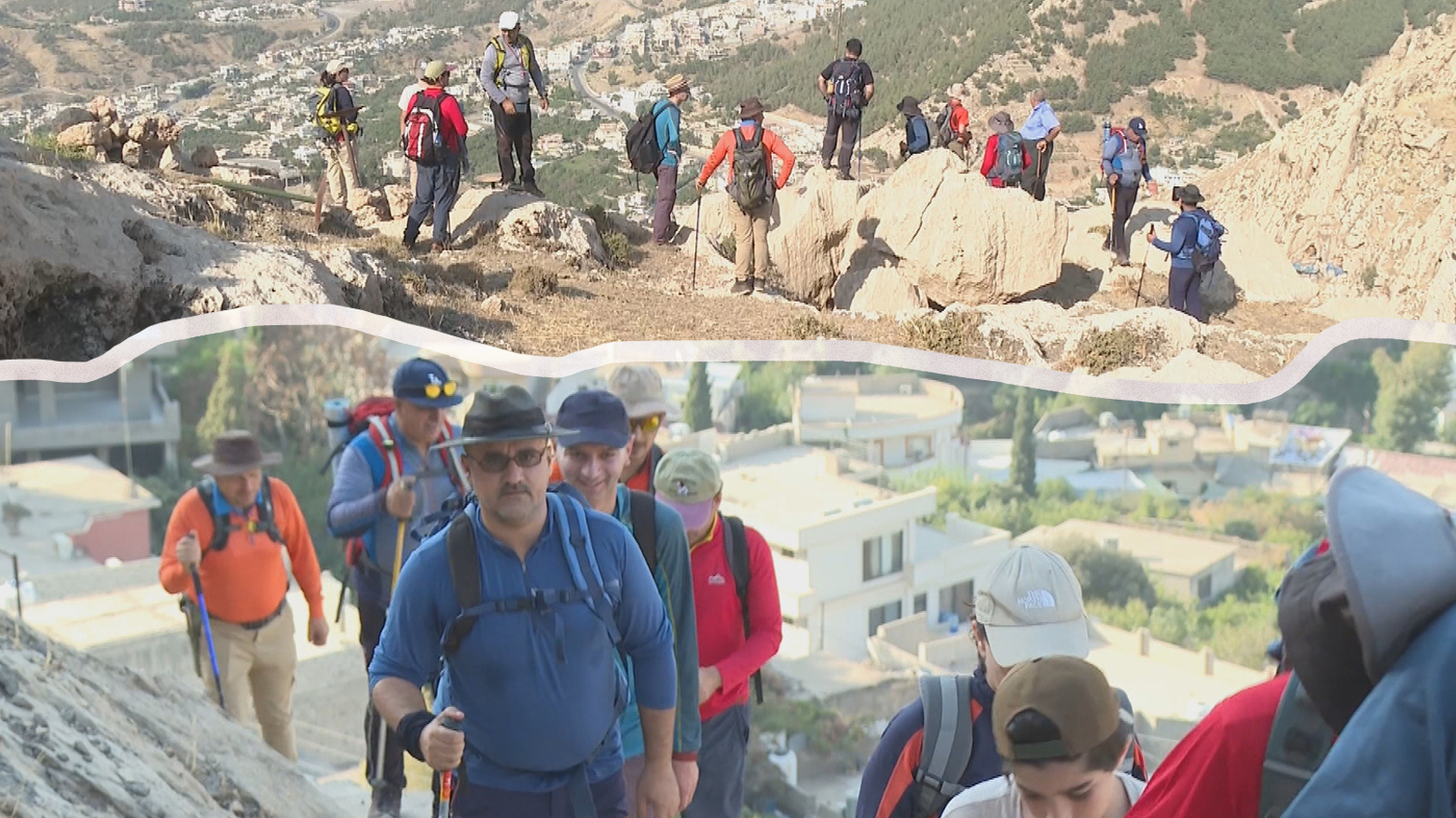Akre's Ancient Castle Draws Hikers Blending Sport with Heritage
Akre's growing mountaineering scene blends sport with heritage at its ancient citadel. As the "Capital of Newroz" becomes a tourism hub, it balances new opportunities with the challenge of preserving its unique history and identity.

ERBIL (Kurdistan24) – The rise of mountaineering in Akre is forging a unique connection between sport and history, as a new generation of enthusiasts scales its ancient slopes to rediscover a profound cultural heritage. In a recent example of this growing trend, a number of mountaineers and tourists undertook an early morning expedition to the Akre Citadel, an iconic bastion considered one of the oldest in both Kurdistan and the world.
The journey highlighted a burgeoning movement that blends the physical rigors of mountaineering with a deep appreciation for the region's historical and natural treasures.
Before beginning their trek, the group gathered as team guides provided essential information on the area's terrain, the challenging routes to the citadel, and the proper techniques for navigating its steep inclines. The path was marked by difficult and rocky sections, demanding great caution and persistence from the participants.
Despite the arduous climb, their efforts were rewarded upon reaching the summit with a spectacular and panoramic view of the town and its stunning surroundings.
For the participants, the expedition was about more than physical achievement. The mountaineers indicated their goal was not merely to engage in a sport but to cultivate an appreciation for historical sites and forge a closer bond with nature.
Abdullah Ilyas, a mountaineering activist, stated, "The purpose of this trip, besides the sport of mountaineering, is to introduce this ancient historical site. The Akre Citadel is one of the oldest citadels in Kurdistan and the world." Another mountaineer, Nizam Faisal, added that the activity involves a range of cultural and natural aspects that foster a greater familiarity with the landscapes of Kurdistan.
This form of recreation is gaining popularity across the Kurdistan Region each year.
In addition to its clear health benefits, it provides citizens with a meaningful way to connect with the region’s enchanting environment and escape the routines of urban life.
The mountaineers mentioned that conquering these heights instills in them a powerful sense of resilience and self-confidence, while such trips also promote the preservation of the environment and ancient historical sites.
The destination of their journey, the Akre Citadel, is itself a monument to the region's deep history.
Located approximately 450 meters above the valley, the citadel was constructed by the Kurdish Prince Zand in 580 B.C. The structure consists of several levels, with the upper tier known as the Prince’s Residence, the middle level used for food storage, and a basement featuring a round meeting hall.
The town of Akre, built on the side of a mountain range, is a gem of Kurdistan, traditionally a mixed community of Muslims, Jews, and Christians nestled at the edge of the Nineveh Plains. Its modern political history includes its urbanization by the Ottoman Empire and its use as a site for a security fort by Saddam Hussein's regime.
Akre’s identity is intrinsically linked to its role as the "Capital of Newroz."
According to a report by the Kurdistan Chronicle, the town's name is derived from the Kurdish word for fire, agir, and during the annual Newroz celebrations, locals carrying fire torches descend from the mountains in a mesmerizing spectacle.
Tariq Aqrawi, the former Ambassador of Iraq to Austria and a prominent figure from Akre, noted in the report that even under the Ba'ath regime, "young people went to the mountains and celebrated secretly." After 1992, the celebration became a major event, drawing thousands of domestic and international tourists.
This influx of visitors is part of a broader trend positioning Akre as a potential tourism hub, a development that brings both opportunities and challenges. The town boasts numerous attractions, from waterfalls and temples to a rich history of religious coexistence.
"Akre has been a homeland for different religious groups, including Jews, Christians, and Muslims. These communities have been living here in peace," Kaywan Kadhim Abdulrahman, a local restaurant owner, told the Kurdistan Chronicle.
However, as Ambassador Aqrawi mentioned in the report, this "mass tourism" has also created issues such as traffic congestion and a lack of sufficient hotels, underscoring the need for careful planning to ensure that development does not "destroy the old town."
As new ventures like traditional hotels and restaurants emerge, Akre stands at a pivotal moment, where its ancient allure, now being embraced by mountaineers and tourists alike, requires thoughtful stewardship to preserve its unique character for future generations.
